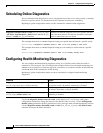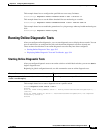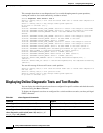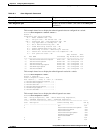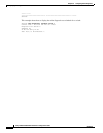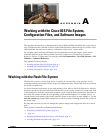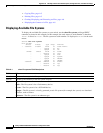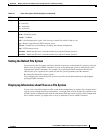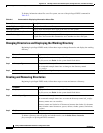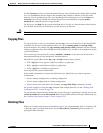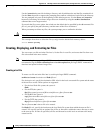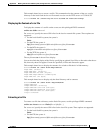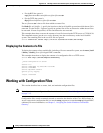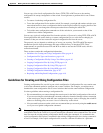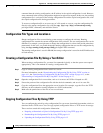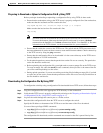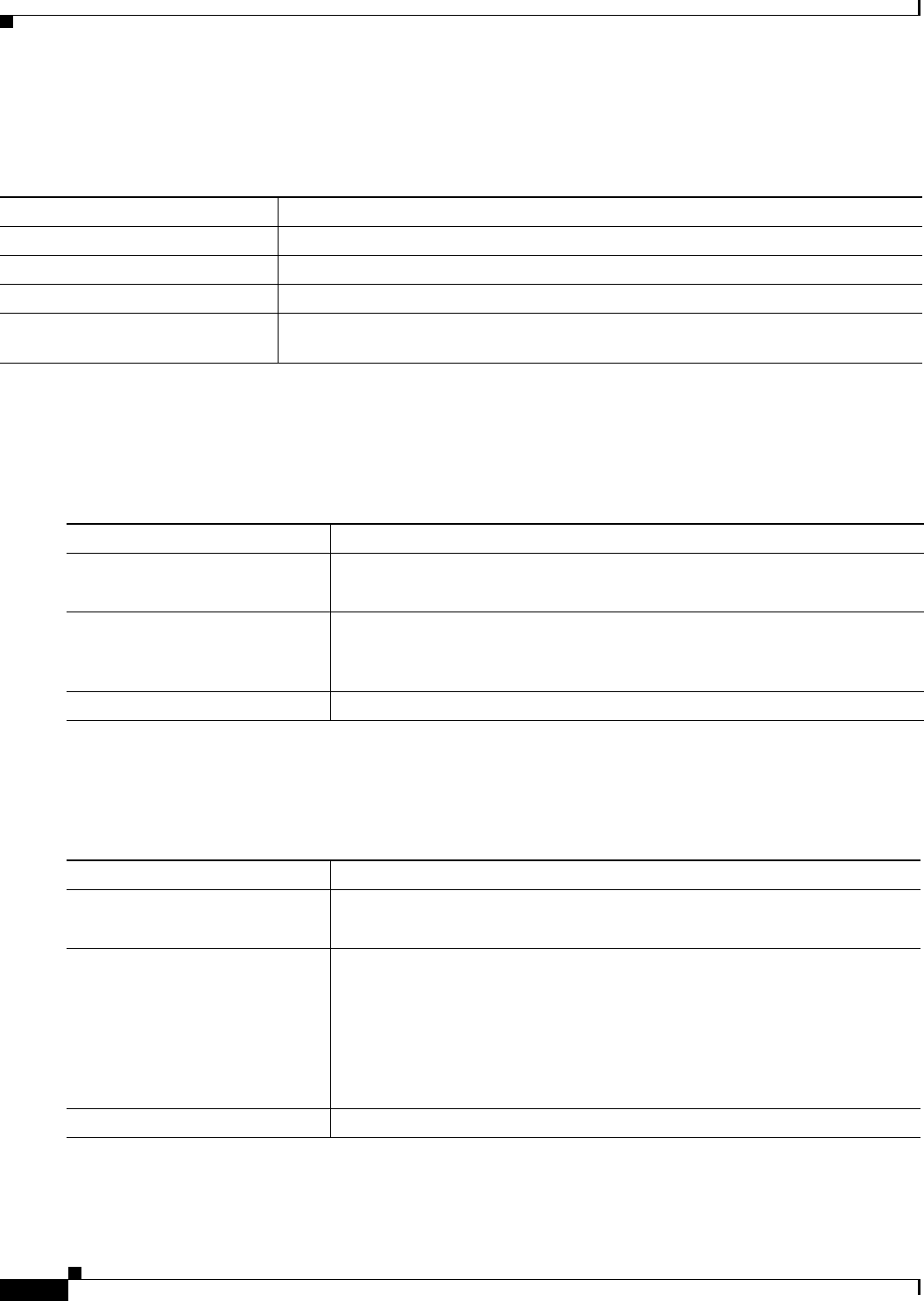
A-4
Catalyst 2960 and 2960-S Switch Software Configuration Guide
OL-8603-09
Appendix A Working with the Cisco IOS File System, Configuration Files, and Software Images
Working with the Flash File System
To display information about files on a file system, use one of the privileged EXEC commands in
Table A-2:
Changing Directories and Displaying the Working Directory
Beginning in privileged EXEC mode, follow these steps to change directories and display the working
directory.
Creating and Removing Directories
Beginning in privileged EXEC mode, follow these steps to create and remove a directory:
To delete a directory with all its files and subdirectories, use the delete /force /recursive
filesystem:/file-url privileged EXEC command.
Table A-2 Commands for Displaying Information About Files
Command Description
dir [/all] [filesystem:][filename] Display a list of files on a file system.
show file systems Display more information about each of the files on a file system.
show file information file-url Display information about a specific file.
show file descriptors Display a list of open file descriptors. File descriptors are the internal representations
of open files. You can use this command to see if another user has a file open.
Command Purpose
Step 1
dir filesystem: Display the directories on the specified file system.
For filesystem:, use flash: for the system board flash device.
Step 2
cd new_configs Change to the directory of interest.
The command example shows how to change to the directory named
new_configs.
Step 3
pwd Display the working directory.
Command Purpose
Step 1
dir filesystem: Display the directories on the specified file system.
For filesystem:, use flash: for the system board flash device.
Step 2
mkdir old_configs Create a new directory.
The command example shows how to create the directory named old_configs.
Directory names are case sensitive.
Directory names are limited to 45 characters between the slashes (/); the name
cannot contain control characters, spaces, deletes, slashes, quotes, semicolons,
or colons.
Step 3
dir filesystem: Verify your entry.



